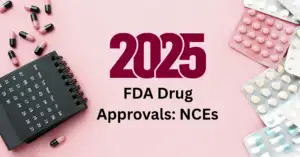Comparator drug sourcing refers to the process of acquiring the comparator drug for use in clinical trials
The sourcing process involves identifying a suitable comparator drug, negotiating with suppliers, ensuring regulatory compliance, and managing the logistics of delivery and distribution. A comparator drug is a medication used as a standard or control in a clinical trial to compare the safety and efficacy of an investigational drug. Examples of comparator drugs used in clinical trials include placebo, standard of care treatments, and existing drugs that have been approved by regulatory authorities for the treatment of the condition being studied. The use of a comparator drug is necessary to ensure that the study results are valid, reliable, and clinically relevant. The selection of the comparator drug depends on the goals of the study and the clinical trial design.
Sourcing comparator drugs involves identifying and obtaining the drugs from a reliable source, ensuring that the drugs are of the correct dosage, quality, and formulation, and managing their storage and distribution to trial sites. This process is critical to ensuring the accuracy and validity of the clinical trial results. Comparator drug sourcing requires careful planning and coordination between the clinical research team, trial sites, and the supplier of the comparator drugs to ensure that the drugs are available in the correct quantity and on schedule for the trial. Sourcing comparator drugs for clinical research trials can be a complex and time-consuming process.
Here are ten vital elements that are critical for successful comparator drug sourcing for clinical trials:
- Comparator Selection: The selection of an appropriate comparator drug is a critical first step in the sourcing process. The comparator should be well-established and clinically relevant to the disease or condition being studied.
- Regulatory Compliance: Comparator drug sourcing must comply with regulatory requirements to ensure that the trial results are valid and can be used for regulatory approval. Some of the important CT regulatory bodies are the US Food and Drug Administration (FDA), European Medicines Agency (EMA), Pharmaceuticals and Medical Devices Agency (PMDA), China Food and Drug Administration (CFDA), Health Canada, Therapeutic Goods Administration (TGA), and Central Drugs Standard Control Organization (CDSCO). It is essential to work with suppliers who are knowledgeable about regulatory requirements and can ensure that the drugs are sourced and distributed in compliance with these requirements.
- Drug Availability: Availability of the comparator drug is crucial to the success of the clinical trial. The drug must be available in sufficient quantities and of the appropriate quality to ensure that the trial results are accurate and valid.
- Quality: The quality of the comparator drug is critical to the accuracy and validity of the trial results. It is essential to work with suppliers who have appropriate licenses and certifications, such as Good Manufacturing Practice (GMP) certification, to ensure that the drug is manufactured to a high standard.
- Cost: The cost of the comparator drug can be a significant factor in the budget of a clinical trial. It is essential to work with suppliers who can provide competitive pricing without compromising the quality of the drug.
- Logistics: Comparator drugs require proper storage, handling, and transportation to maintain their quality and integrity. It is essential to work with suppliers who have the expertise and capabilities to manage the logistics of the drug sourcing and distribution process, including temperature monitoring, tracking, and security measures.
- Timeliness: Timely delivery of the comparator drug is critical to the success of the trial. Any delays or issues with drug availability can impact the timeline of the trial and the validity of the results.
- Communication: Clear and open communication between the clinical research team and the comparator drug supplier is essential to ensure that the drug is sourced, stored, and distributed appropriately.
- Risk Mitigation: A risk management plan should be in place to identify and address potential risks associated with the sourcing, storage, and distribution of the comparator drug.
- Additional Documentation: All aspects of comparator drug sourcing must be documented additionally for procurement of products, including the selection process, regulatory compliance, drug availability, quality, cost, logistics, and risk management plan.
Overall, successful comparator drug sourcing requires careful planning, coordination, and communication between the clinical research team and the supplier. By considering these ten vital factors, clinical trial teams can help ensure the success of their trials and the validity of their results.





